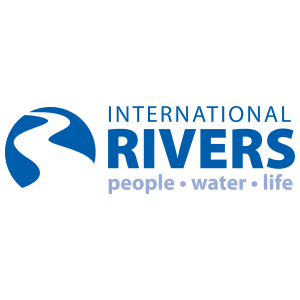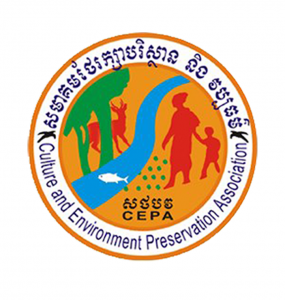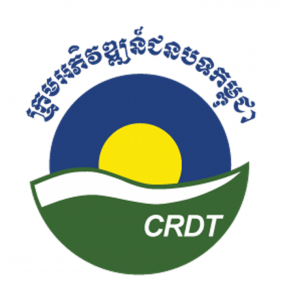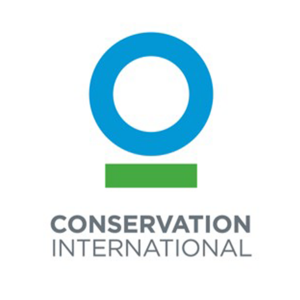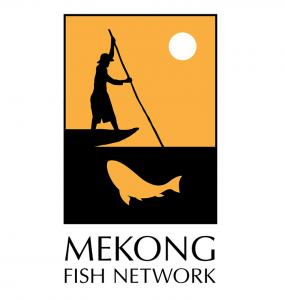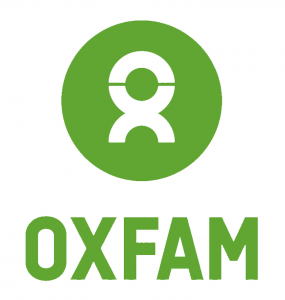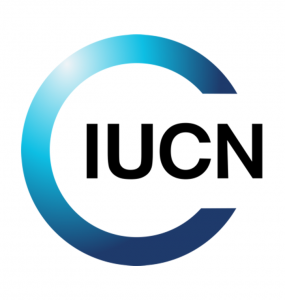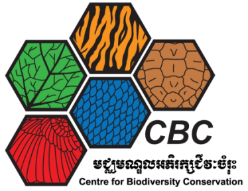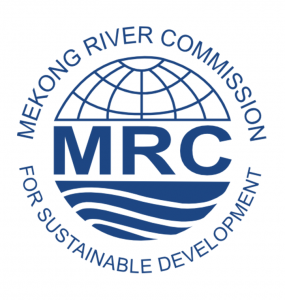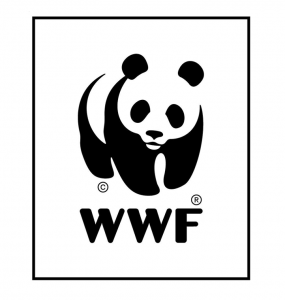International Rivers protects rivers and defends the rights of communities that depend on them. We work with an international network of dam-affected people, grassroots organizations, environmentalists, human rights advocates and others who are committed to stopping destructive river projects and promoting better options. We seek a world where healthy rivers and the rights of local communities are valued and protected. We envision a world where water and energy needs are met without degrading nature or increasing poverty, and where people have the right to participate in decisions that affect their lives.
CEPA was established by a group of people who love the environment for natural resources preservation. Their mission is to work with all levels of organizations to improve people’s economic, social, cultural through research, information exchange and knowledge, to Improve the livelihood of people in the community and equality between men and women, to empower people in the communities to have equal right to use and manage natural resources, and to push communication channels to increase social awareness and preserve indigenous culture. For activities which related to the Mekong River are Eco-tourism project, and Sustainable River-Based Management Project.
Learn more: INTERNATIONAL RIVERS
Learn more: CEPA
Cambodia Rural Development Team is an NGO that operates in three areas of Cambodia such as Kraties, Stung Treng and Mondoulkiri which work on poverty and environmental issues. The purpose of CRDT is aimed to improve the livinghood of people in the communities through, enhancing business and protecting the environment. They worked on several projects, but work related to the Mekong River are Conservation of dolphins, Mekong water pollution, and Sustainable Livelihood Improvement for Communities along the Mekong River.
STIMSON is a center work to promote international security, prosperity and justice through research, analysis, participation and policy making. STIMSON has worked on many issues and in many places, for example in Southeast Asia. There, they work on the protection of the Mekong’s ecosystem and support local economic development, and the projects that STIMSON has undertaken are Mekong River Basin Project, Mekong River Policy Project, War Legacies Working Group, Southeast Asia Forum.
Learn more: STIMSON
MFN is a voluntary association of people with a focus on expanding their knowledge on fish, especially fish in the Mekong River. The goal is to improve the capacity of local people and institutions, to facilitate dialogue and Cross-border collaboration, and create connections to share existing knowledge. The MFN uses its website and regular newsletter to share news and fish-related project updates from other organizations working in the Lower Mekong Basin.
Learn more: CI
Learn more: MekongFishNetwork
NTFP-EP is a collaborative network of NGOs, communities and people in Asia working to strengthen the capacity of forest-dependent communities and the goal is to empower forest-based communities. Most especially NTFP-EP works in the areas of NTFPs and community livelihoods, including culture, democracy and gender equality. For the work that NTFP-EP done has AGROFORESTRY PROJECT, Honey Project, CBE / LIVELIHOOD Project, and CBET Project: a project to help people strengthen their tourism services, develop their promotional capacity, and collaborate with other tourism companies.
Oxfam is an international organization working in Cambodia to promote and protect human rights, strengthen women’s economy, build strong communities and manage responsibility natural resources. Oxfam collaborates with all levels of institutions because they believe that when civil society, the community, the private sector, the media and other stakeholders work together to foster change. The following story that Oxfam created have Mekong Champion Struggle for Sustainability of the Mekong River and Mekong River Energy Infrastructure Development.
IUCN is an international union comprising of more than 1,400 member organisations and 15,000 environmental experts. In Cambodia, IUCN is implementing various projects on water and wetlands. The Mekong WET project focuses on strengthening climate change adaptation by harnessing the benefits of wetlands in the Mekong Region. The Building River Dialogue and Governance in the Sekong, Sesan and Srepok river basins (BRIDGE 3S) project aims to establish, expand and enhance the knowledge and leadership framework to promote a shared vision for sustainable use of water resources in the Mekong Basin. A previously completed project focused on transboundary dolphin conservation between Thailand and Cambodia, and sought to improve ecotourism and diversify local livelihoods in the region.
The Centre for Biodiversity Conservation (CBC), located at Royal University of Phnom Penh (RUPP), is an academic and research body co-established by RUPP and Fauna & Flora International (FFI), Cambodia Program, in 2005. CBC’s overall goal is to strengthen conservation decision-making and action within Cambodia by providing new generation of scientists with essential skills, experience, information, resources and connections in the government, non-government and academic sectors. Up to date, CBC has successfully conducted more than 20 research related to biodiversity conservation and sustainable management in Cambodia. Other opportunistic active research consists of ecology, diversity and taxonomy of birds, fish, amphibian, reptiles, insects and other invertebrates in Cambodian Lower Mekong Basin.
The Mekong River Commission (MRC) is the only inter-governmental river basin agency for regional dialogue and cooperation in the lower Mekong river basin, established in 1995 based on the Mekong Agreement between Cambodia, Lao PDR, Thailand and Viet Nam. The organization serves as a regional platform for water diplomacy as well as a knowledge hub of water resources management for the sustainable development of the region. The MRC has built on a foundation of more than six decades of knowledge and experience in the region, starting from 1957 when it began life as the UN-founded Mekong Committee.
WWF is a world’s largest independent conservation organization. WWF was established in Cambodia in 1998, as a part of the WWF Greater Mekong Programme. Today, WWF-Cambodia is one of five Country Offices in the South East Asia region coordinating conservation efforts across Myanmar, Thailand, Lao PDR, Cambodia and Vietnam. WWF-Cambodia is working with local communities, the Royal Government at all levels, private sector, NGOs and many other conservation partners to protect biodiversity and natural resources in the Eastern Plains Landscape (EPL) in Mondulkiri and the Mekong Flooded Forest Landscape (MFF) in Kratie and Stung Treng, home to many globally endangered species. WWF’s mission in Cambodia is to ensure that there will be strong participation and support from all people to conserve the country’s rich biological diversity. WWF-Cambodia envisions Cambodia’s river, forests and wildlife are conserved for all.
International Rivers protects rivers and defends the rights of communities that depend on them. We work with an international network of dam-affected people, grassroots organizations, environmentalists, human rights advocates and others who are committed to stopping destructive river projects and promoting better options. We seek a world where healthy rivers and the rights of local communities are valued and protected. We envision a world where water and energy needs are met without degrading nature or increasing poverty, and where people have the right to participate in decisions that affect their lives.
CEPA was established by a group of people who love the environment for natural resources preservation. Their mission is to work with all levels of organizations to improve people’s economic, social, cultural through research, information exchange and knowledge, to Improve the livelihood of people in the community and equality between men and women, to empower people in the communities to have equal right to use and manage natural resources, and to push communication channels to increase social awareness and preserve indigenous culture. For activities which related to the Mekong River are Eco-tourism project, and Sustainable River-Based Management Project.
Learn more: INTERNATIONAL RIVERS
Learn more: CEPA
Cambodia Rural Development Team is an NGO that operates in three areas of Cambodia such as Kraties, Stung Treng and Mondoulkiri which work on poverty and environmental issues. The purpose of CRDT is aimed to improve the livinghood of people in the communities through, enhancing business and protecting the environment. They worked on several projects, but work related to the Mekong River are Conservation of dolphins, Mekong water pollution, and Sustainable Livelihood Improvement for Communities along the Mekong River.
STIMSON is a center work to promote international security, prosperity and justice through research, analysis, participation and policy making. STIMSON has worked on many issues and in many places, for example in Southeast Asia. There, they work on the protection of the Mekong’s ecosystem and support local economic development, and the projects that STIMSON has undertaken are Mekong River Basin Project, Mekong River Policy Project, War Legacies Working Group, Southeast Asia Forum.
Learn more: CEPA
Conservation International is an international organization that works wherever nature is destroyed. In Cambodia, CI works to preserve nature for the benefit of people. For the work that CI have done Women’s Fish Processing Project, Forest management, Biodiversity Research, and Ecotourism support.
MFN is a voluntary association of people with a focus on expanding their knowledge on fish, especially fish in the Mekong River. The goal is to improve the capacity of local people and institutions, to facilitate dialogue and Cross-border collaboration, and create connections to share existing knowledge. The MFN uses its website and regular newsletter to share news and fish-related project updates from other organizations working in the Lower Mekong Basin.
Learn more: CONSERVATION INTERNATIONAL
Learn more: MekongFishNetwork
NTFP-EP is a collaborative network of NGOs, communities and people in Asia working to strengthen the capacity of forest-dependent communities and the goal is to empower forest-based communities. Most especially NTFP-EP works in the areas of NTFPs and community livelihoods, including culture, democracy and gender equality. For the work that NTFP-EP done has AGROFORESTRY PROJECT, Honey Project, CBE / LIVELIHOOD Project, and CBET Project: a project to help people strengthen their tourism services, develop their promotional capacity, and collaborate with other tourism companies.
Oxfam is an international organization working in Cambodia to promote and protect human rights, strengthen women’s economy, build strong communities and manage responsibility natural resources. Oxfam collaborates with all levels of institutions because they believe that when civil society, the community, the private sector, the media and other stakeholders work together to foster change. The following story that Oxfam created have Mekong Champion Struggle for Sustainability of the Mekong River and Mekong River Energy Infrastructure Development.
IUCN is an international union comprising of more than 1,400 member organisations and 15,000 environmental experts. In Cambodia, IUCN is implementing various projects on water and wetlands. The Mekong WET project focuses on strengthening climate change adaptation by harnessing the benefits of wetlands in the Mekong Region. The Building River Dialogue and Governance in the Sekong, Sesan and Srepok river basins (BRIDGE 3S) project aims to establish, expand and enhance the knowledge and leadership framework to promote a shared vision for sustainable use of water resources in the Mekong Basin. A previously completed project focused on transboundary dolphin conservation between Thailand and Cambodia, and sought to improve ecotourism and diversify local livelihoods in the region.
The Centre for Biodiversity Conservation (CBC), located at Royal University of Phnom Penh (RUPP), is an academic and research body co-established by RUPP and Fauna & Flora International (FFI), Cambodia Program, in 2005. CBC’s overall goal is to strengthen conservation decision-making and action within Cambodia by providing new generation of scientists with essential skills, experience, information, resources and connections in the government, non-government and academic sectors. Up to date, CBC has successfully conducted more than 20 research related to biodiversity conservation and sustainable management in Cambodia. Other opportunistic active research consists of ecology, diversity and taxonomy of birds, fish, amphibian, reptiles, insects and other invertebrates in Cambodian Lower Mekong Basin.
The Mekong River Commission (MRC) is the only inter-governmental river basin agency for regional dialogue and cooperation in the lower Mekong river basin, established in 1995 based on the Mekong Agreement between Cambodia, Lao PDR, Thailand and Viet Nam. The organization serves as a regional platform for water diplomacy as well as a knowledge hub of water resources management for the sustainable development of the region. The MRC has built on a foundation of more than six decades of knowledge and experience in the region, starting from 1957 when it began life as the UN-founded Mekong Committee.
WWF is a world’s largest independent conservation organization. WWF was established in Cambodia in 1998, as a part of the WWF Greater Mekong Programme. Today, WWF-Cambodia is one of five Country Offices in the South East Asia region coordinating conservation efforts across Myanmar, Thailand, Lao PDR, Cambodia and Vietnam. WWF-Cambodia is working with local communities, the Royal Government at all levels, private sector, NGOs and many other conservation partners to protect biodiversity and natural resources in the Eastern Plains Landscape (EPL) in Mondulkiri and the Mekong Flooded Forest Landscape (MFF) in Kratie and Stung Treng, home to many globally endangered species. WWF’s mission in Cambodia is to ensure that there will be strong participation and support from all people to conserve the country’s rich biological diversity. WWF-Cambodia envisions Cambodia’s river, forests and wildlife are conserved for all.

